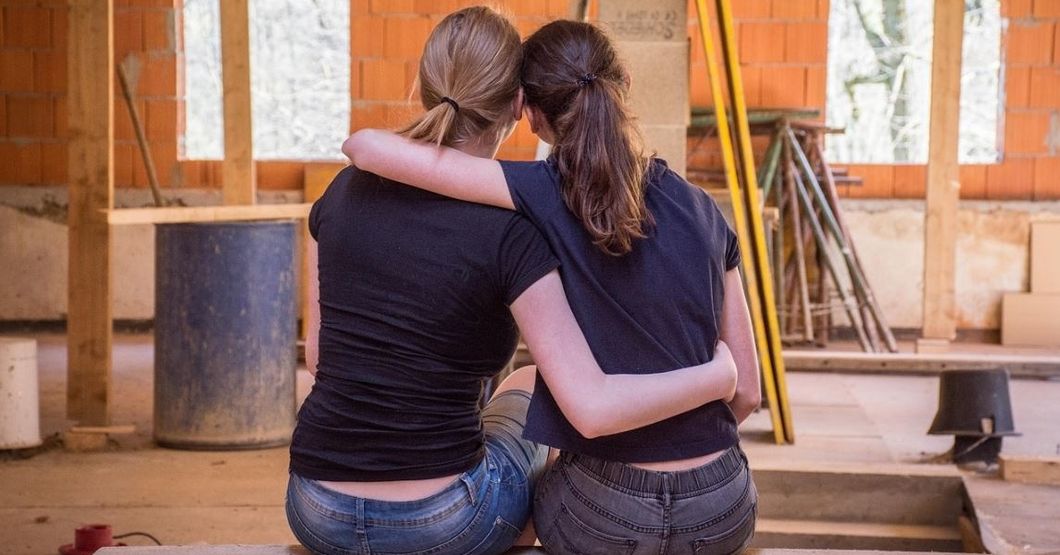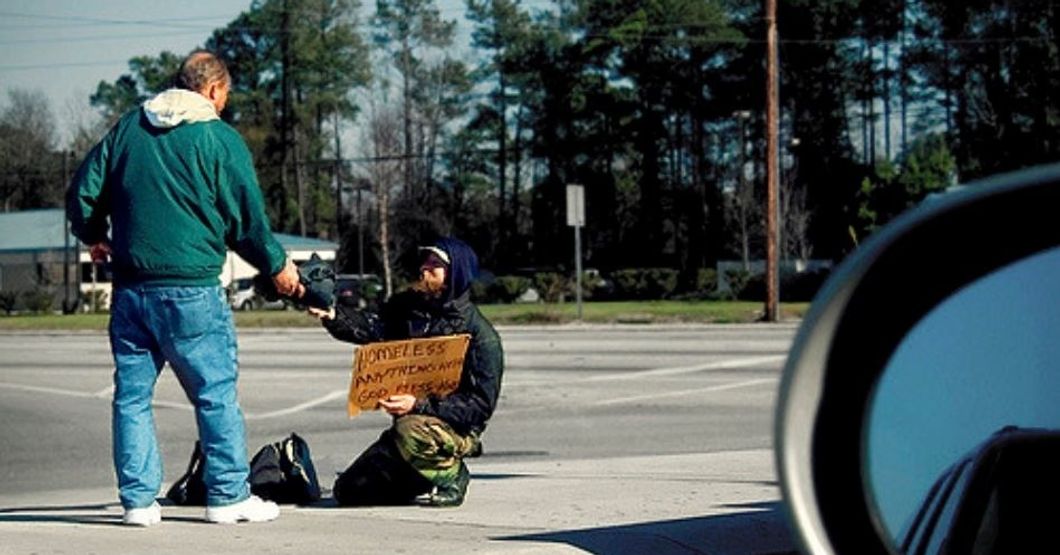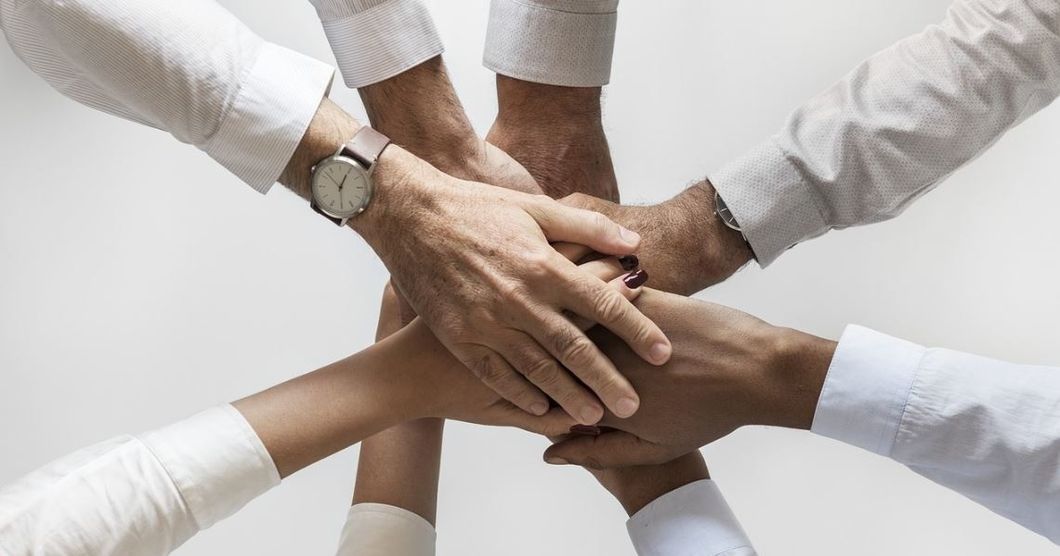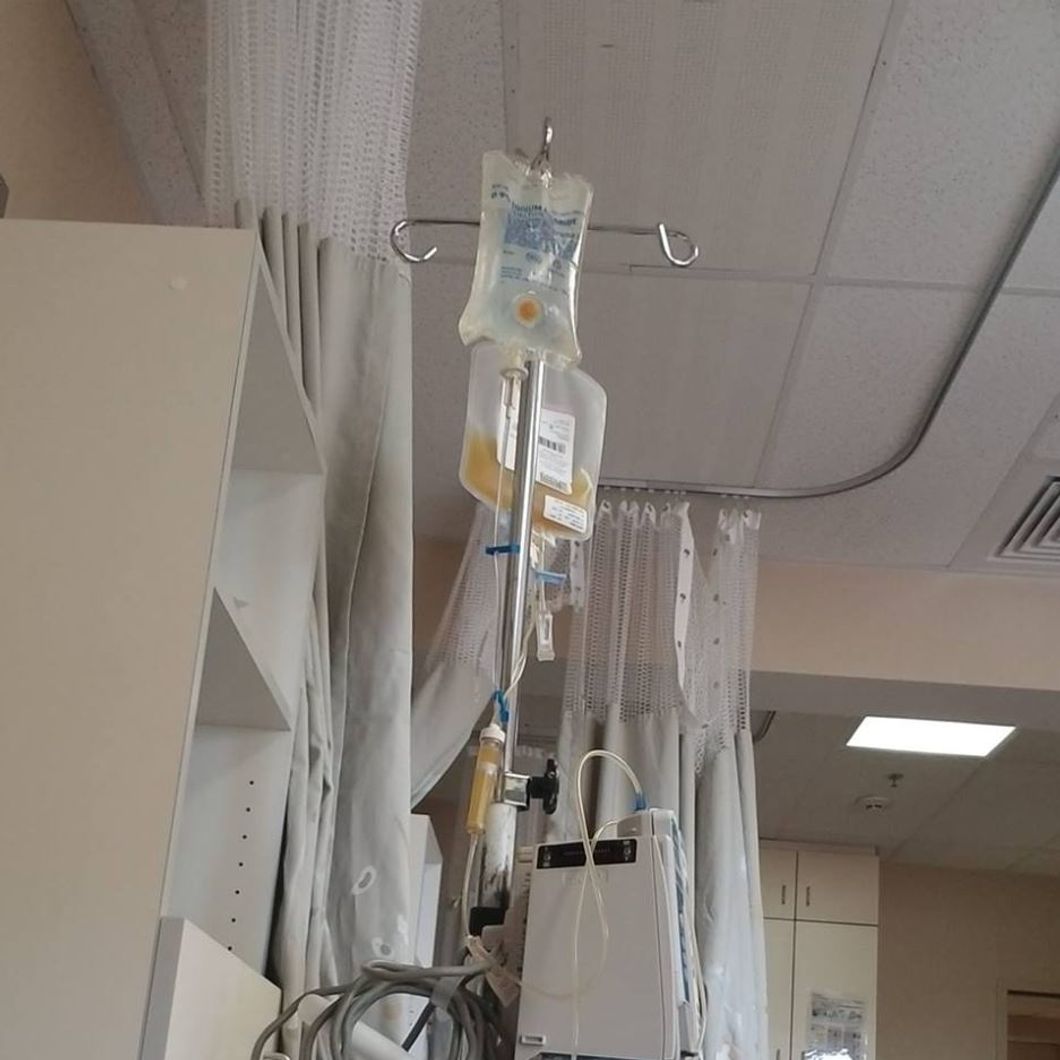Every school has that one person who looks completely fine, but suddenly misses 3 weeks in the middle of the semester because they've come down with some weird illness. Or maybe they were suddenly diagnosed with a new autoimmune disorder... Every. Single. Semester. Then they suddenly come back, maybe looking a little worse for wear, pushing through finals week only to spend the summer getting better.
It's definitely an interesting process for the people around them, but it's miserable for the person going through it. Your social life comes crashing down, some days you're in just too much pain to move, and yet you're expected to move through all of it so that you look "normal" to everyone around you. One or two of these episodes or illnesses may not be too bad, but once you've hit five or more, it goes from "wow this sucks" to "why does my body hate me so much? I've done absolutely nothing to cause this."
That being said, I wouldn't change my experiences with my health for the world. Sure, at least two of my health conditions could kill me if I wasn't careful and a third one causes absolutely horrific pain every now and again, but the lessons I've learned by being the"sick kid" have made me a better person.
1. No matter what a person looks like, they may be struggling—and being there to support them is vital

An Invisible disability can be anything from a food allergy to cancer, but as a general rule you would never be able to tell that they had health issues by just looking at them. Offering your support to those around you, even your acquaintances, can make a world of difference.
2. Pain is not a laughing matter

For the average person, pain fades quickly and doesn't occur too regularly; this means that when your friend is complaining about something like an upset stomach or a headache, you just tell them to take some ibuprofen and move on with your day. I was the exact same way until I was diagnosed with complex regional pain syndrome, a rare nerve disorder where the pain exceeds childbirth according to the McGill University Pain Scale. Acknowledging that pain is real and important, regardless of its severity, is incredibly important to anyone hurting.
3. The smartest kid in the room may still need help with their academics

I've always excelled in school, so you would never guess that my grades tend to slip whenever I'm stressed, sick, or in pain. When a friendly acquaintance who sat in front of me in ethics took notes for me a week that I was sick, it truly helped more than anyone could have imagined. Even if someone doesn't look like they need it, offering them more resources will never hurt.
4. Fear isn't always rational, and that's okay

I've used needles for for my medical care. I have blood work every three months, poke myself with a big needle every seven days, and poke myself with a pretty small one every three. Thing is, after 18 years, I still almost pass out every time I see a needle coming my direction. So your fear of cats may be completely irrational, but so is my fear of needles—and that is completely fine.
5. Don't ever compare your struggles

I've been told more than once that I have too many diagnoses for someone who's only 21. I've been told by doctors that I've been dealt a bad hand, by nurses that they didn't usually see a medical list as long as mine at my age, by medical assistants that my medication list is complex... but I don't have cancer, right? I can still walk, too, so I shouldn't be complaining. Thing is, two problems can exist at once. My friend's sadness over her botched haircut is as equally valid as me crying over a new diagnosis. And that's okay.
6. What's easy for me may be hard for someone else

I can walk most of the times. I can hear very clearly. Unfortunately, I cannot regulate my body temperature very well. That's easy for most people, but I need to take extra precautions in certain weather conditions because of this. Just like I have problems with something that people tend to consider simple, other people may struggle with reading, gardening, or playing certain video games. Rather than getting frustrated, it's better to offer them help and understand that it may take them a little longer.
7. Just listening can go a long way

Let's be honest here: unless you've lived through it, you'll never understand it. This goes for anything. Rather than talking about you're grandmother's second-cousin's uncle's step-son who herded cattle and went through something vaguely similar, just letting the person know you're there can work wonders. If you feel as if the problem is too much for you an your friend to tackle alone, suggesting classroom accommodations, mental health specialists, nonprofit support groups, or even Facebook groups can help show that you're listening and invested in their well being.
8. Ask before touching

Physical touch can be very painful for me some days. As much as I would love to hug you and congratulate you on your promotion, I need to watch out for my health and safety. I don't know what someone's been through, if they may have any medical implants that hurt when I press on them, or if they may have allodynia; even if I've been friends with them for years, asking if I can touch them is a way to avoid hurting both them and our friendship.
9. The smallest actions make the biggest impacts

When I'm stuck in bed, at another specialist's office, or waiting to hear back about imaging, getting a silly little GIF or a phone call from a friend makes all the difference in the world. It can make me smile while crying, get me engaged when I'm otherwise horribly upset, and remind me that someone's thinking about me when I feel otherwise alone. By taking 30 seconds out of my day to touch in with those I care about, I can help them feel loved as well.
10. Not everyone is going to be understanding or helpful—but I should always be

Ever since middle school, I've personally faced incidences where doctors, teachers, and peers have shrugged off my health concerns. Even when I had a doctor's note stating that I needed to be on bed rest for several weeks after surgery, many of the people around me were unwilling to acknowledge that I needed help or even that the bed rest was necessary. Even if I don't necessarily understand the circumstances, offering a helping hand is the right thing to do in any circumstance.
11. The "real world" WILL help you

In high school, my teachers would always say that the "real world" wouldn't help you if you couldn't keep up. Well, surprise, it did. The real world is more strict with deadlines, but there are also more people willing to offer you their support if you're looking in the right spots. When people have a shared goal, they won't let you fall behind.




















